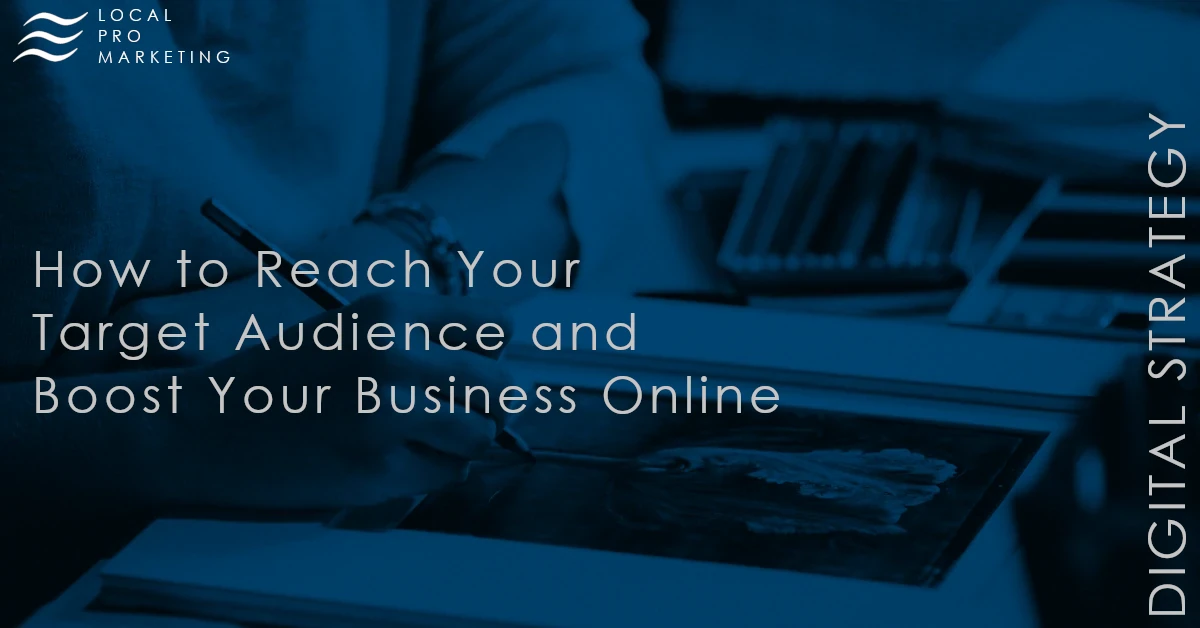The internet has become an integral part of our daily lives. From social media to online shopping, we rely on the internet for just about everything. As a result, businesses of all sizes are turning to digital marketing to reach their target audience and promote their products and services online. In this blog post, we’ll explore the basics of digital marketing and how it can benefit small businesses.
So, what is digital marketing exactly? At its core, digital marketing is a way for businesses to promote their brand, products, and services using digital channels such as search engines, social media, email, and websites. Unlike traditional marketing methods, which can be costly and difficult to measure, digital marketing offers small businesses a cost-effective way to reach their target audience, build their brand, and drive revenue.
But why is digital marketing so important for small businesses? Simply put, the internet has leveled the playing field. With the rise of e-commerce, social media, and search engines, small businesses now have the same opportunities to compete with larger, more established companies online. By leveraging digital marketing strategies like search engine optimization (SEO), pay-per-click (PPC) advertising, email marketing, social media marketing, and content marketing, small businesses can reach their target audience and stand out in a crowded online marketplace.
Of course, digital marketing can be complex and overwhelming, especially for small business owners who may not have the time or resources to devote to it. But by understanding the basics and implementing the right strategies and tactics, small businesses can achieve significant growth and success online. In the following sections of this blog post, we’ll explore each of these strategies in more detail and provide practical tips and advice for getting started with digital marketing.

Search Engine Optimization (SEO)
Search Engine Optimization, or SEO, is a critical aspect of digital marketing. Essentially, SEO is the practice of optimizing your website and its content to rank higher on search engine results pages (SERPs). The higher your website ranks on a SERP, the more likely people are to click through to your site and become customers.
SEO involves a variety of techniques, including keyword research, on-page optimization, and link building. Keyword research involves identifying the keywords and phrases that people are searching for when looking for products or services related to your business. These keywords can then be incorporated into your website’s content in order to make it more relevant to search engines.
On-page optimization involves optimizing individual web pages in order to rank higher and earn more relevant traffic in search engines. This can include optimizing content for specific keywords, ensuring that pages load quickly, and optimizing meta descriptions and title tags.
Link building involves acquiring links from other websites that point back to your website. The more high-quality, relevant links your website has, the more authoritative and trustworthy it appears to search engines. However, it’s important to note that not all links are created equal, and some links can actually hurt your website’s ranking if they are from low-quality or spammy websites.
In addition to these techniques, there are many other factors that can impact your website’s ranking on search engines. These include things like website security, mobile-friendliness, and user experience. In order to improve your website’s ranking and attract more traffic, it’s important to have a comprehensive SEO strategy in place that takes all of these factors into account.
SEO is a critical component of digital marketing, as it can help businesses to attract more relevant traffic and ultimately drive more revenue. By incorporating targeted keywords into your website’s content, optimizing your pages for search engines, and building high-quality links, you can improve your website’s ranking and attract more potential customers to your business.

Pay-Per-Click (PPC) Advertising
Pay-per-click (PPC) advertising is a popular digital marketing strategy that involves placing ads on search engines and social media platforms. As the name suggests, businesses only pay when someone clicks on their ads, making it a highly cost-effective way to drive traffic and leads to your website. Here are some of the benefits of PPC advertising for small businesses:
- Targeted: PPC advertising allows small businesses to target specific audiences based on keywords, demographics, and location. This means that your ads will only appear to people who are most likely to be interested in your products or services, increasing the chances of conversion.
- Measurable: PPC advertising is highly measurable, allowing small businesses to track the performance of their ads in real-time. You can see how many people are clicking on your ads, what keywords they are using, and how much each click is costing you. This data can help you optimize your campaigns and maximize your return on investment (ROI).
- Cost-effective: With PPC advertising, you only pay when someone clicks on your ad, making it a highly cost-effective way to drive traffic to your website. You can set a daily budget for your campaign, and once you reach that limit, your ads will stop showing until the next day.
- Quick results: Unlike other digital marketing strategies like SEO, which can take months to see results, PPC advertising can generate results in a matter of days. As soon as your ad is approved, it can start showing up in search results and social media feeds, driving traffic and leads to your website.
PPC advertising is an excellent digital marketing strategy for small businesses looking to generate quick results, drive targeted traffic to their website, and maximize their return on investment. With its cost-effective and highly measurable nature, PPC advertising can help small businesses compete with larger brands and reach their target audience with precision.

Email Marketing
Email marketing is another essential aspect of digital marketing, which involves sending targeted and personalized emails to a list of subscribers. This strategy is a highly effective way of engaging with potential customers, building brand loyalty, and increasing sales.
To start email marketing, you need to build a list of subscribers interested in your products or services. One way to build your email list is by offering valuable content such as ebooks, webinars, or newsletters in exchange for visitors’ contact information.
Once you have your list, you can start crafting your email campaigns. Email campaigns can be used to promote your products or services, announce new offerings, or offer discounts and promotions. You can also use them to share industry insights, customer stories, and other engaging content to build trust and rapport with your subscribers.
One of the advantages of email marketing is that it offers a high level of personalization. You can segment your email list based on subscribers’ interests, behavior, and other relevant factors, and create targeted campaigns that are more likely to resonate with them. This personalization can lead to higher open rates, click-through rates, and conversions.
Another advantage of email marketing is its cost-effectiveness. Compared to other digital marketing channels, email marketing is relatively inexpensive, and the return on investment can be significant. Additionally, email marketing allows you to track and measure your campaign’s success, including open rates, click-through rates, and conversion rates, among others. This data can be used to refine your campaigns and improve their effectiveness over time.
Email marketing remains a powerful tool for businesses to engage with customers, build brand loyalty, and drive sales. To succeed in email marketing, it is essential to provide valuable content, segment your list, and track your campaign’s success. By following these best practices, businesses can create email campaigns that are both effective and engaging for their subscribers.

Social Media Marketing
Social media has transformed the way we communicate, and businesses have quickly realized the potential of these platforms as a marketing tool. Social media marketing involves leveraging various social media channels to promote your products or services, build your brand, and engage with your target audience.
The most popular social media platforms for marketing include Facebook, Instagram, Twitter, LinkedIn, YouTube, and Pinterest. Each platform has its own unique features and user base, which means that businesses need to tailor their approach to fit the platform they are using.
Social media marketing can take many forms, such as:
- Creating engaging content: This can include anything from photos and videos to blog posts and infographics. The key is to create content that is informative, entertaining, or useful for your audience. You can use social media to share this content and attract new followers and customers.
- Running social media ads: Social media platforms offer powerful targeting options, which allow businesses to reach specific audiences with their ads. You can create ads that promote your products, services, or content, and use different formats like images, videos, or carousel ads.
- Engaging with your audience: Social media is a two-way conversation, and businesses that engage with their followers are more likely to build a loyal fan base. You can respond to comments, answer questions, and even run social media contests to boost engagement.
- Influencer marketing: This involves partnering with social media influencers who have a large following in your target audience. You can pay influencers to promote your products or services or collaborate with them on content that will resonate with their followers.
The benefits of social media marketing include increased brand awareness, higher website traffic, improved customer engagement, and increased sales. It also provides valuable insights into your audience’s behavior, interests, and preferences, which you can use to refine your marketing strategy.
Social media marketing requires a consistent and dedicated effort, and businesses need to be careful to avoid common pitfalls like over-promotion, low-quality content, or lack of engagement. With the right approach and strategy, social media marketing can be a powerful tool for small businesses to reach new customers and grow their brand.

Content Marketing
Content marketing is all about creating valuable and relevant content that can help businesses attract and retain a loyal audience. The idea is to provide potential customers with information that they find interesting or useful, in the hope that they will remember your brand and become more likely to buy from you.
There are many different types of content that businesses can create, such as blog posts, videos, infographics, podcasts, and more. The key is to find the types of content that resonate with your target audience and provide value to them.
For example, a company that sells fitness gear might create a blog with articles on healthy eating and exercise tips, or a series of videos showing different workout routines. By providing this content for free, the company can attract potential customers who are interested in fitness, and then promote their products to them in a natural way.
One of the key benefits of content marketing is that it can help establish your brand as a thought leader in your industry. By providing valuable information that helps people solve their problems or achieve their goals, you can build trust and credibility with your audience. This can be particularly effective in industries where customers are looking for expertise and guidance, such as finance or healthcare.
Another advantage of content marketing is that it can help improve your search engine rankings. By creating high-quality content that is optimized for specific keywords, you can improve your chances of showing up on the first page of Google search results. This can drive more traffic to your site and help you attract more leads and sales.
To get started with content marketing, it’s important to have a clear strategy and plan in place. This should include things like defining your target audience, identifying the types of content that resonate with them, and creating a content calendar to ensure that you’re publishing new content on a regular basis.
It’s also important to track your results and make adjustments as needed. By monitoring things like website traffic, social media engagement, and email open rates, you can get a sense of what types of content are resonating with your audience and make changes to your strategy accordingly.
Content marketing can be a powerful tool for businesses of all sizes to attract and retain customers, establish their brand as a thought leader, and drive more revenue. By creating valuable content that helps solve your audience’s problems, you can build trust and credibility and ultimately drive more leads and sales.

Measuring Success
Measuring the success of your digital marketing efforts is critical to understanding what’s working and what’s not. Fortunately, with digital marketing, it’s easier than ever to track and analyze data to make data-driven decisions. Here are some key metrics you can track to measure the success of your digital marketing campaigns:
- Website traffic: One of the most basic and important metrics to track is website traffic. This can include total visits, unique visitors, and bounce rate. By monitoring your website traffic, you can see how many people are visiting your site, where they’re coming from, and how long they’re staying. If you notice a decline in traffic, it could be a sign that your marketing efforts need to be adjusted.
- Conversion rate: Conversion rate refers to the percentage of visitors who take a desired action on your site, such as making a purchase or filling out a contact form. By tracking your conversion rate, you can see how effective your website and marketing campaigns are at driving conversions.
- Cost per acquisition: Cost per acquisition (CPA) is the cost of acquiring a new customer or lead. By tracking your CPA, you can see how much you’re spending to acquire new customers, and whether or not your marketing campaigns are cost-effective.
- Social media engagement: If you’re using social media as part of your marketing strategy, it’s important to track your engagement metrics, such as likes, comments, and shares. By monitoring your engagement, you can see what types of content are resonating with your audience, and adjust your strategy accordingly.
- Email open rates and click-through rates: If you’re using email marketing, it’s important to track your open rates and click-through rates. By monitoring these metrics, you can see how effective your email campaigns are at engaging your audience, and make adjustments to improve their effectiveness.
By tracking these and other key metrics, you can gain valuable insights into the effectiveness of your digital marketing campaigns, and make data-driven decisions to improve your results.

Small businesses need to have a strong online presence to succeed, and digital marketing is the key to achieving this. By implementing a variety of digital marketing strategies such as SEO, PPC advertising, email marketing, social media marketing, and content marketing, businesses can effectively promote their products or services, reach their target audience, and drive more revenue.
Digital marketing offers numerous advantages over traditional marketing methods. It is more cost-effective, measurable, and allows businesses to target specific audiences more effectively. By staying up-to-date with the latest trends and best practices, businesses can optimize their digital marketing strategies and achieve their goals.
One important aspect of digital marketing is measuring success. By tracking key performance indicators such as website traffic, email open rates, ad clicks, and conversions, businesses can gain valuable insights into their marketing efforts and make data-driven decisions to improve their strategies.
Digital marketing is an essential tool for small businesses to compete in the modern marketplace. By leveraging the power of the internet, businesses can reach new audiences, build brand awareness, and ultimately drive more sales. With a solid digital marketing plan in place, small businesses can thrive and grow in today’s ever-evolving digital landscape.



